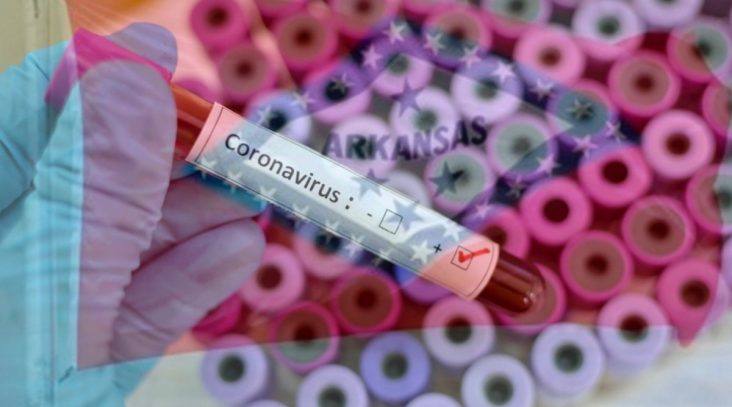Economist grades state, national response to COVID-19
by July 5, 2020 9:52 am 2,262 views

University of Arkansas economist Mervin Jebaraj gives the federal government a pretty good grade for its economic response to the COVID-19 pandemic, but he says the state and nation are struggling due to shortcomings in rapid testing and contact tracing.
Jebaraj, who heads the Center for Business and Economic Research at the University of Arkansas Walton College of Business, appeared on this week’s edition of Talk Business & Politics.
“I think the positive that we can really draw from all of this – if there is really anything that we can point to, as being positive – is that given the scale of the economic drop that we were expecting, the federal government did respond fairly well. If I were to grade them, I would say that their response was good, solid B,” he said.
Jebaraj points to the combination of the Payroll Protection Plan, stimulus checks and extended unemployment benefits as efforts that kept the economy from a total freefall.
“It is important to remember that the real stimulus was the $2,400 each household that was on unemployment benefits got in addition to their regular unemployment benefits, which, in Arkansas, the median beneficiary was then making about 120 or so percent of what they would have made at their job. So that stimulus is the highpoint,” he said.
“I think as a result of that the economic carnage was sort of stemmed a little bit. That doesn’t mean to say that there isn’t a whole lot of businesses closing, especially smaller businesses that haven’t been able to survive this. That doesn’t mean to say that we won’t need additional federal government support, especially for small businesses,” Jebaraj added. “At some point, because this pandemic is currently still in its first wave and we see such high numbers, we’re probably going to need a national level bailout of the leisure and hospitality industry – restaurants and bars, and those types of activities – in the same way that the federal government bailed out the airlines in this pandemic.”
Jebaraj said a major hurdle for changing the trajectory of the COVID-19 pandemic centers on testing and contact tracing – two subjects that come up daily in state and national conversations on the coronavirus.
“I think the absolute failure in this particular response has been in our in ability to effectively test and trace the progression of the virus,” he said. “We have greater levels of testing going on both in Arkansas and the country as a whole, but not enough to where we need it to be to be able to effectively stem the tide or at least reduce the number of infections and accurately tell who has and who doesn’t have the virus.
“We’re doing an absolutely poor job in contact tracing across the country and in our state as well. We’re simply not contacting enough folks soon enough to stop the spread of the virus,” he added.
With Arkansas hitting its highest one-day total of new COVID-19 cases this past week, health care leaders in Northwest Arkansas have expressed major concerns about capacity. Gov. Hutchinson has argued that President Donald Trump should invoke the National Defense Production Act – as the President did with ventilator production earlier this year – to boost testing supplies.
Jebaraj suggested that this is imperative.
“Without retesting people before re-entering the economy, we’re not going to be getting ahead of this virus. And without some standardization, about isolation and quarantine, and how long that should last, we’re not going to get ahead of the virus,” he said. “To do that, we need to not only provide sick leave, paid sick leave, to people that test positive for the coronavirus, but also to all the people that are required to isolate and quarantine for the entire duration of their isolation and quarantine. Or else, you’re not going to get the necessary compliance with isolation and quarantining from workers that might have come in contact and may be asymptomatic.”
You can watch Jebaraj’s full interview in the video below.
